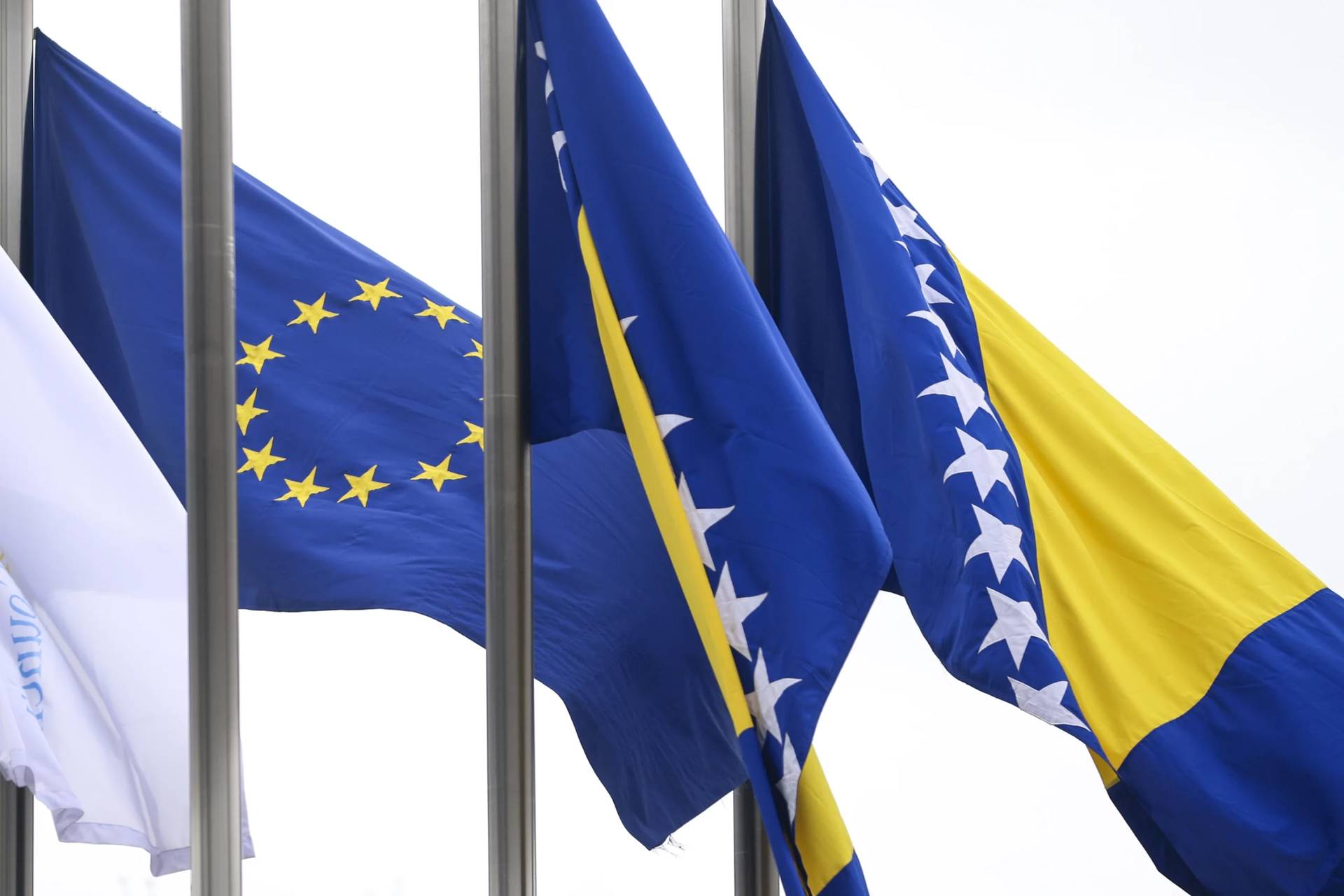ROME – As part of a broader European initiative designed to empower young people and encourage their social involvement, Europe’s bishops have launched their own new platform where youth can share perspectives on key policy areas.
In an Oct. 6 press release for the new initiative, called YouthNet, Jean-Claude Hollerich of Luxembourg invited young delegates to “make the YouthNet a place of true fraternity, an example of how we can be brothers and sisters, aware of our unique cultural identities, truly united in diversity.”
Hollerich, who is also president of the Commission of the Bishops’ Conferences of the European Union (COMECE), said “This new consultative body will promote the concrete participation of young European Catholics in shaping EU policies.”
Launched Oct. 5, YouthNet is an initiative of COMECE and draws on two previous largescale Catholic youth conventions, held in June 2021 and June 2022.
YouthNet is a body of young delegates, aged 18-35, from the various episcopal conferences of the European Union, who have signed on for a two-year mandate working with the secretariat of COMECE on specific endeavors, and as consultants on policy dossiers.
According to an Oct. 6 press release on the launch of YouthNet, the goal is to bring the perspective of young people to “all dimensions of EU policymaking,” and to heed their sensitivity to current political and social challenges.
Hollerich, during the initiative’s launch, also underlined the importance of empowering young people at all levels of society, while “acting with and across all generations for the Common Good in the EU.”
Over the next few months, members of YouthNet will conduct an extended reflection on how to promote EU values such as democracy and fundamental rights, and they will present their conclusions at the COMECE assembly in 2023.
The launch of COMECE’s YouthNet takes place in the context of the broader European Year of Youth, which launched in January and was announced by European Commission President Ursula von der Leyen in her 2021 State of the Union address.
It is being coordinated by the European Commission, which is organizing a range of special events and projects for young people with the collaboration of the European Parliament and the various EU member states, as well as regional authorities.
The various initiatives carried out during the European Year of Youth are being supported by an 8-million-euro ($7.8 million) contribution from the Erasmus program and the European Solidarity Corps.
According to a December 2021 press release on the initiative from the European Commission, the main aim of the European Year for Youth is to provide the young people who participate opportunities to gain knowledge, skills, and general competencies for their professional development, and to enhance their civic engagement in order to “shape Europe’s future.”
To this end, the Year for Youth has four main objectives, the first of which is to renew the “positive perspectives for young people,” with special consideration for the negative impact of the COVID-19 pandemic, while also highlighting the opportunities that “green and digital transitions” as well as other EU policies can offer young people and society as a whole.
This initiative is also designed to help young people, especially those who are disadvantaged, vulnerable, or who have access to fewer opportunities, to develop both knowledge and skill sets, “and thus become active and engaged citizens, inspired by a European sense of belonging.”
The initiative also seeks to help young people to acquire a better understanding of the opportunities that are already available to them by promoting active participation in these areas, whether it be at the EU, national, regional or local levels as a means of supporting their overall development.
It will also focus on mainstreaming youth policies throughout all EU fields in line with the 2019-2017 EU Youth Strategy as a means of encouraging young people to contribute to policy making at all levels.
Organizers have voiced hope that the effects of the Year for Youth would extend far beyond 2022 and would develop cross-sectoral projects that build on all EU policies.
To comply with the European Year for Youth, the European Commission urged all EU member states to appoint a national coordinator responsible for overseeing national participation.
By the end of 2023, the European Commission will submit a report on the implementation, results, and overall evaluation of the initiative, and will also include ideas for further joint initiatives in the area of youth engagement.
Pope Francis has often lamented the disillusionment of young people throughout the world who lack work and meaningful opportunities for advancement and to contribute to their societies, saying they are often the first victims of a faulty global system focused more on profit than on human flourishing.
Though not tied in any formal way to the European Year for Youth, the pope last month presided over a large gathering of young economists and entrepreneurs called “the Economy of Francis” in Assisi, home of his namesake, Saint Francis of Assisi.
There, Francis and the nearly 1,000 youth who participated signed a joint pact outlining their vision for a peaceful and just economy that’s more equitable and respectful of the poor and the environment.
In addition to his repeated pleas on behalf of the poor and the environment and his critiques of global capitalism, the pope urged young economists and entrepreneurs present to blaze new paths of justice and equality.
“When a young person sees in another young person the same calling, and this experience is repeated with hundreds, even thousands of other young people, then great things become possible, even the hope of changing an enormous and complex system like the world economy,” he said.
Follow Elise Ann Allen on Twitter: @eliseannallen

















